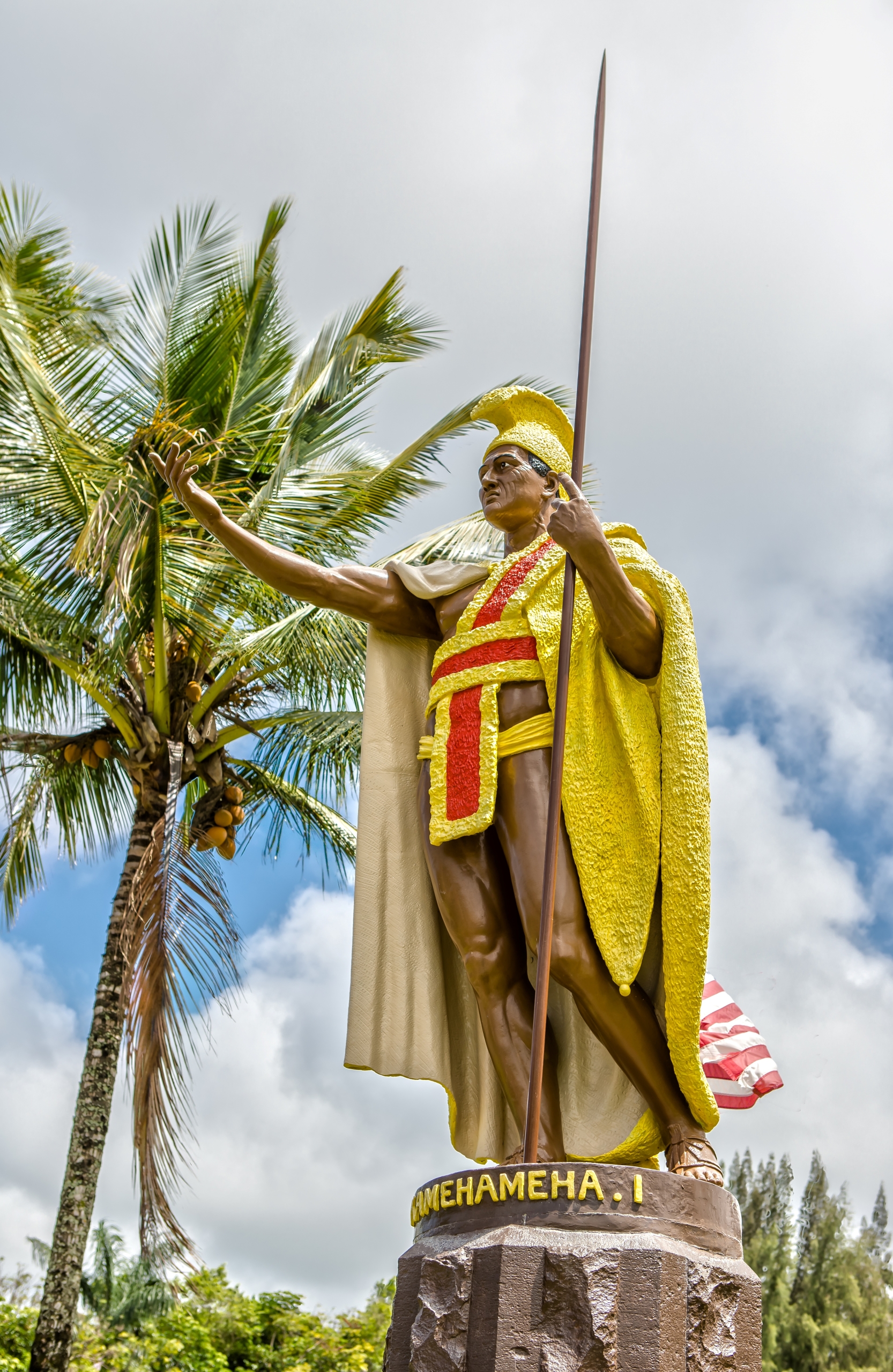Ke Ali‘i Kamehameha Nui – Kamehameha the Great
King Kamehameha I was one of the greatest Hawaiian leaders of all time: a fierce warrior, chief, and the first King of the Kingdom of Hawai‘i. His life and legacy are still celebrated today through chant, song and hula.
One of the greatest gifts of his legacy still guides Hawai‘i lawmakers today, it is the “Kānāwai Māmalahoe (The Law of the Splintered Paddle).” This law comes from a story of Kamehameha and other warriors after a battle in Puna, where they may not have been as valiant as intended. While paddling towards Hilo, Kamehameha spotted a group of people fishing along the coast. Being of bad temper, he instructed that the canoe turns to the shore with the intent of harming the people. The people instinctively fled, once on the beach Kamehameha chased them with weapons and paddles in hand. While running, his foot got lodged in the lava, and he fell and could not move. Seeing that Kamehameha had fallen, one of the men ran back, picked up the paddle and broke it over Kamehameha’s back.
A few years later, in 1797, when Kamehameha was King of Hawai‘i island, he shared this story and how wrong he was. He now chose to face those individuals, apologized to them and awarded them with land in Hawaiʻi. He also then proclaimed the following law:

Kānāwai Māmalahoe (Law of the Splintered Paddle)
E nā kānaka, Oh people
E mālama ‘oukou i ke akua. Honor thy god
A e mālama ho‘i ke kanaka nui a me kanaka iki; Respect alike (the rights of) people both great and humble
E hele ka ‘elemakule, ka luahine, a me ke kama, May everyone, from the old men and women to the children
A moe i ke ala, Be free to go forth and lie in the road (i.e. by the roadside or pathway)
‘A‘ohe mea nāna e ho‘opilikia. Without fear of harm
Hewa nō, make. Break this law, and die
— Kamehameha I
This law is now part of our State Constitution. It is the foundation for many human rights laws established in Hawai‘i, such as our elder law, children’s rights, homeless advocacy and bicyclist safety. It is symbolized in the crossed paddles on the Honolulu Police Department badge and at the University of Hawai‘i William S. Richardson School of Law.
Kamehameha’s vision was for “one people, one breath, one mind, one heart.” His legacy can be seen everywhere one looks throughout Hawai‘i, and as we celebrate Kamehameha Day this June 11th, I ponder the Hawaiian saying, “E ‘ōpū ali‘I (Have the heart of a chief).” The deeper meaning of this is to have and demonstrate the kindness, generosity, wisdom, and even temper of a chief – a good and righteous chief and leader.
Imua Kamehameha e! (Forward Kamehameha!)



